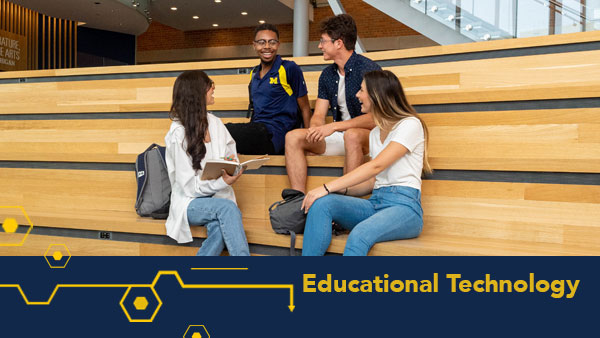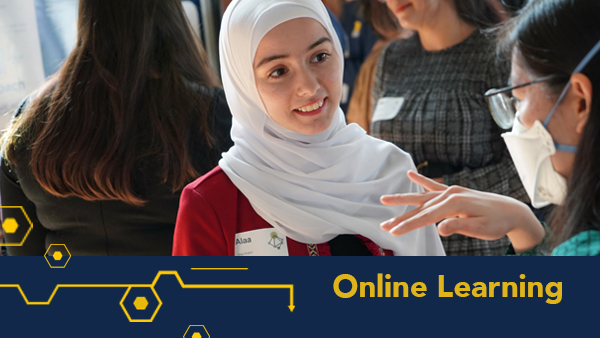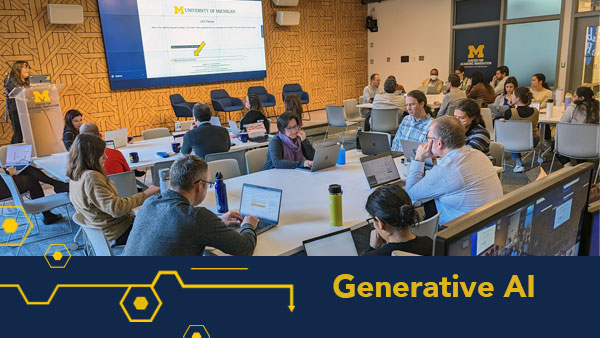Adam Levick, Data Scientist
@adlevick
At Academic Innovation, we build at scale. Whether we are building MOOCs, digital tools, or learning analytics, a big part of success is being able to sustainably bring our innovations to great numbers of people. This means that having a team devoted to understanding the value of what we do, and then being able to broadly promote that value is key to our success. That team is known as “Marketing.” This is the first of a series of posts that will describe the kind of work the Marketing team does to help ensure the success of our initiatives.
Approaching Solutions at Scale
What often comes as an early surprise for those that work with us, is that building for scale requires very different approaches than those used in the residential setting. These differences are especially pronounced in how promotion is approached. This can best be defined as a need to shift the balance from “readability” to “searchability” as the primary consideration for titling and describing our innovations. We define something with high “readability” as something that is enjoyable to read, whereas something with high “searchability” is something that has the ability to be found in the first place.
Finding Massive Online Open Courses
In the residential setting, when students are in the process of choosing courses they generally find those courses in one centralized system where they are able to easily browse every course offered in a subject area. Courses with titles and descriptions that have high “readability” for the student (based on their interests) will drive them to enroll in that course. This is extremely different from an online setting, where the number of potential options are amazingly more diverse, complex, and distributed. What may be an engaging and readable title in a residential listing may not connect to the types of search terms people are most commonly using to find related content (whether that be a Wikipedia page, new articles, or other online courses). For this reason, when we create MOOCs, we approach titles and descriptions with the primary goal of better matching the words and phrases people are searching for when looking for related content. While “readability” is important and still a major consideration, in the online setting, sacrificing “searchability” means the learner may never find the content in the first place!
Getting In Touch With Potential Learners
 After identifying a course that could potentially benefit from better aligning title/description with search habits, we do a close reading of that course’s proposal to identify the different types of language used to describe content and to ascertain the key values learners gain from interacting with that content. Once we have an understanding of the kinds of words and word pairs used to describe the course, we use an online tool, Google Trends, to identify which alternatives are most aligned with the searches people make on Google. This allows us to build a pool of high value words that can then be put together to form potential titles and descriptions. We can then take 3 or 4 of these titles, and test them in an online survey with 200-300 potential learners to identify whether interest in specific titling is definitively more interesting to all or different segments (gender, age, or location) of learners. The end result is a simple recommendation on which title will produce the best “searchability” for your course, as well as a pool of high value words to use in descriptions and for promotion in the future.
After identifying a course that could potentially benefit from better aligning title/description with search habits, we do a close reading of that course’s proposal to identify the different types of language used to describe content and to ascertain the key values learners gain from interacting with that content. Once we have an understanding of the kinds of words and word pairs used to describe the course, we use an online tool, Google Trends, to identify which alternatives are most aligned with the searches people make on Google. This allows us to build a pool of high value words that can then be put together to form potential titles and descriptions. We can then take 3 or 4 of these titles, and test them in an online survey with 200-300 potential learners to identify whether interest in specific titling is definitively more interesting to all or different segments (gender, age, or location) of learners. The end result is a simple recommendation on which title will produce the best “searchability” for your course, as well as a pool of high value words to use in descriptions and for promotion in the future.


